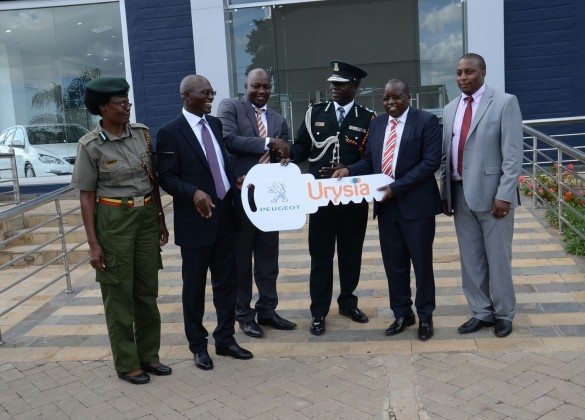Four years ago, Robert Nyasimi walked out of formal employment to start what has become a multi-billion-shilling venture.
His firm, RentCo East Africa, is among the biggest asset leasing companies in the region after clocking Sh4.5 billion in deals. “We are on course to double the volumes of business this year,” said Mr Nyasimi, the group chief executive. His business has established a firm foothold in a sector that is just beginning to gain traction.
More and more institutions are moving to lease assets rather than own them to free up cash flow, and passing on their management to third parties.
Lessors, the owners of the assets, such as RentCo, are paid a rental fee over the period of a lease. Typically, the assets revert to the owners after the expiry of the term, and the equipment can be disposed of at a discounted price, depending on the depreciation.
A policy decision by the Government to turn to leasing has been a boon for RentCo and other players in this space.
Thousands of police cars have since 2013 been outsourced from private entities, including Toyota Kenya, which is supplying the trademark navy blue Land Cruiser pick-up trucks. In the first phase, the State allocated Sh3 billion for leasing 1,200 vehicles for security agencies.
It was envisioned that turning to leases would have a ripple effect on other sectors, including motor dealership and insurance, given Government-owned vehicles are not insured. RentCo has leased nearly 2,000 vehicles to various Government departments, including the police and other security agents, as well as dozens of private firms. “Our firm has leased almost every conceivable asset. Think of an electricity wall socket, and we have that,” said the CEO.
RentCo has also leased out supermarket shelves, shopping trolleys and even tills to major retailers around the country.
In the first two months of 2016, the firm signed rental deals worth Sh1.8 billion, putting it on course to smash the sales volumes reported last year, said Nyasimi. Even before factoring in revenue projections, he is already towering over his former employer — an Australian-majority owned firm that is a major competitor. With the benefit of hindsight, Nyasimi says his walking away from his former employer, the subsequent establishment of RentCo and its success was never a fluke.
For starters, the CEO, who started his career as a banker, had risen to the level of general manager in his last posting. From this position, he got the best possible understanding of the asset leasing business. He made critical contacts with prospective clients, besides convincing even the staunchest of sceptics, from start-ups to manufacturing conglomerates, that leasing makes business sense.
It is not common to find organisations that are awash with cash; they most often turn to commercial banks for credit to finance the acquisition of assets and bridge regular cash constraints. With borrowing, organisations can access loans to acquire assets in an outright purchase. Banks, however, have their criteria for determining who they lend to, and at what interest rate.
Due to the lenders’ risk averse nature, some businesses are disqualified from accessing loans. And regulatory guidelines do not permit banks to lease equipment. With leasing, businesses pay periodic rental fees derived from the cash generated from operations, and in this way, limit set-up costs. “All a business needs is to identify the assets it wants, and we do the rest,” he said, but then quickly qualifies this statement. RentCo will carry out due diligence investigations to determine the viability of an applicant’s request.
Leasing firms are financed by commercial banks to acquire assets before entering lease arrangements. The rentals paid are the primary source of revenues for leasing firms, and are paid at agreed intervals during the term of the arrangement. These fees help with loan repayments.
A typical lease agreement is about four years, during which time the value of an asset is knocked down to reflect the utility drained. Many times the selling price of an asset is higher than its booked value, presenting leasing firms with a secondary revenue stream.

